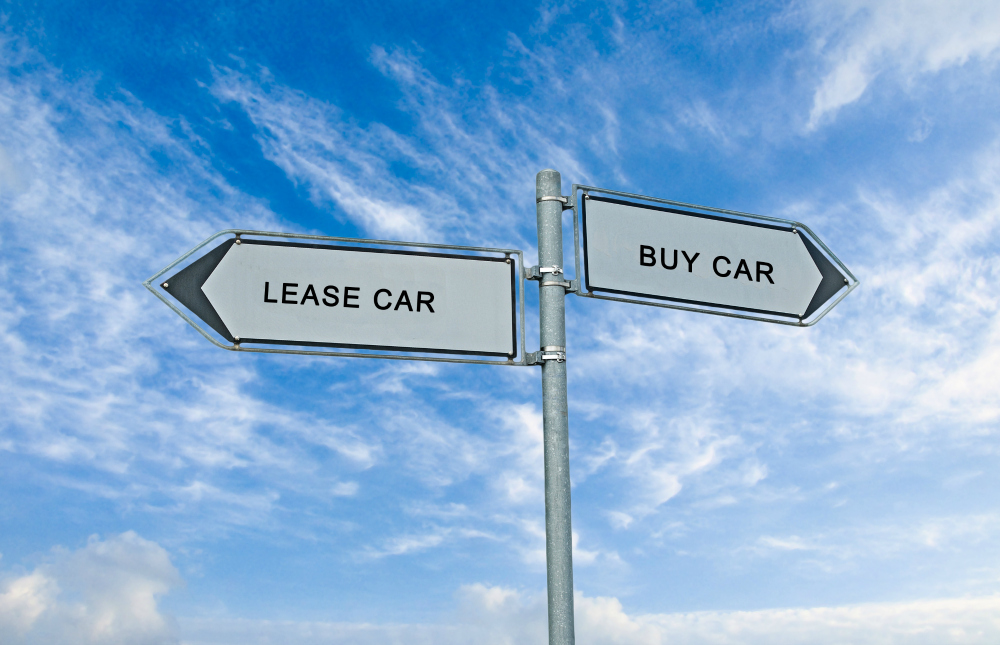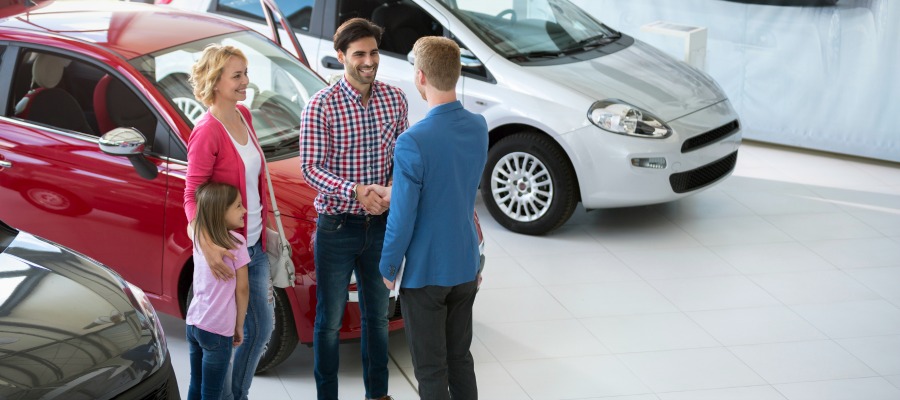Should you Lease or Buy a Car?

The Lease vs. Buy Debate
Why 40% of Rosen customers lease.
Is leasing or buying the best way to finance your next car? There’s no one simple answer to this debate, except “it depends.”
In this Q&A, Scott Levy, owner of Rosen Hyundai, identifies the ideal customer for leasing, and why it might work for some people and not others.
Q: Why do people lease rather than buy?
Rosen: Plain and simple: leasing gives you options.
No one knows what their financial life will look like in three years. In three years one can lose a job, gain a promotion, be swallowed up by medical costs, experience a costly catastrophe, or inherit wealth. Leasing a car gives you flexibility to downgrade or upgrade given your ever-changing financial situation.
When your lease is up, you can upgrade, downgrade, re-lease a car, buy the car, or trade it in. Whereas when you buy a car, you only have one option—and that’s to trade it in.
What would you say to someone concerned that he/she technically won’t own the car?
It’s a common concern. But remember, when you finance a car, you don’t really own the car. The bank owns the car. When you lease, you don’t own the car either. The leasing company owns the car. It’s a similar situation, except at the end of a lease you have more options. With leasing you are only obligated for the term of the lease, which is typically three years. With buying, the loan is typically dragged out over five or six years of financing.
Is leasing more or less expensive than financing?
With all these options, you can work out the lease to give you more car for less payment (and that’s usually how it works out).
Take this example with a vehicle that has a $20,000 MSRP. If you purchase it, you are financing the entire amount, and your monthly payment will probably be around $300. If you lease it, the payment is based on the lease percentage of the residual value, so your monthly payment will probably be around $200.
Of course, this depends on financing rates. But typically, you are going to be able to drive a more expensive car for less money.
If you are someone who wants to get a new car every three to four years—and can’t pay for a new car in full—leasing is a great option. You’ll still have a car payment, but at least it will be for a brand new car. Many professionals who interface with clients opt for leasing because it allows them to buy a luxury vehicle for less money. Some people simply love driving new cars, enjoying the latest bells and whistles. Leasing allows them to upgrade more frequently.
Are there other reasons to lease?
One big reason is your car is almost always under warranty, so the cost of ownership drops drastically. With Hyundai, you are under warranty for the entire time of the lease. General service maintenance (think oil changes and tire rotations) is really the only thing you have to pay for. Everything else is covered.
Leasing benefits your credit as well. Your monthly payment is the only thing that will show up on your credit report. As long as you are making those payments, and you’re making them on time, leasing helps your credit score.
Also, with leasing, a smaller down payment is required. Typically, customers don’t have to come up with any cash beyond the first month’s payment. You can even get money back on a lease if you are trading in a vehicle.
Is leasing for people who drive a lot?
Most leases allow for 12,000 to 15,000 miles per a year. However, if you drive a lot, say 20,000 miles a year, you are still a lease candidate. If you build your lease with higher mileage, you will pay a little more per month than someone who intends to drive less.
But if you were to buy a car, rather than lease it, and drive it for three years, you’d have over 60,000 miles on it, and your car would be worth much less at sale time. Your options could be limited (see our article on ideal time to trade in a vehicle).
Is there ever a point in which a leasing is prohibitive because of mileage?
Yes, there does come a point where there are too many miles for a lease. If you are going to put 25,000 miles per year on a car, the lease is going to be so much per month that it won’t be worth it. You are better off financing the vehicle. But for someone who puts the average miles per year (15,000 miles) on a car, leasing is a great alternative.
What about mileage overages?
Mileage is a hidden danger in leasing agreements.
If you’re careful when you initially set up the lease and account for the right mileage, you won’t have any problems.
Some people will ask, “What if I set up 12,000 miles and only do 8,000 miles a year?” While this won’t affect your monthly payments, in three years’ time, your car could be worth a little more because we built in 12,000 miles a year. The lease is based on the residual of a car with 36,000 miles, not 20,000.
How can I be smart about this?
These are the questions you need to ask your leasing agent:
What type of maintenance am I required to do?
What am I responsible for at the end of the lease?
Are there any related fees at the end of the lease?
That way, there are no surprises.
About 40 percent of our customers lease cars. It can be a great option for the right person. But first, do your homework and know what you’re getting into.
If you’re looking to lease a car and think it may be the option for you. Your Hyundai dealer in Algonquin is the place to go! Get into the car you want to drive today!


